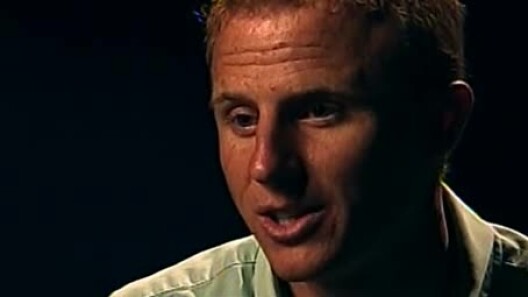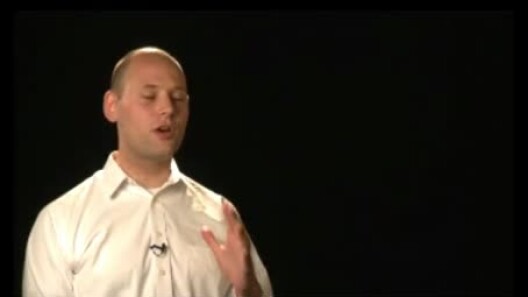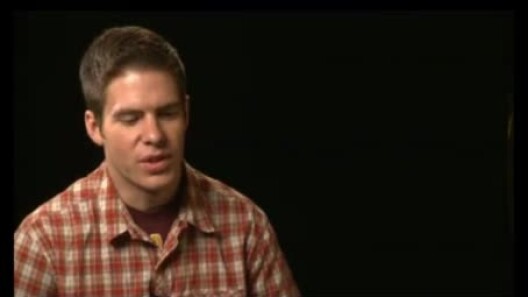The Active Power of Faith
The Prophet Joseph Smith taught that "faith is not only the principle of action, but of power also, in all intelligent beings" (Lectures on Faith, p. 3). To exercise faith in the Lord Jesus Christ is to accept Him as our Savior and live in accordance with His will through repentance and obedience to His commandments. Learning to act in accordance with one's faith in Christ is fundamental to enjoying deep, life-changing learning. Learners and teachers who center their faith in the Savior "look unto [Him] in every thought" such that they do not doubt their capacity to learn, nor fear their opportunities to teach (D&C 6:36).
The power we access by acting in faith that is focused on the Savior allows us to exceed our natural limits and learn beyond our natural capabilities. This enabling power is manifest through the bestowal of spiritual gifts, accelerated learning, enhancement of natural abilities, discernment, and personal revelation.
Insights From Students
Additional Resources
"I am the vine, ye are the branches: He that abideth in me, and I in him, the same bringeth forth much fruit: for without me ye can do nothing." John 15:5
"To be learned is good if they hearken unto the counsels of God." 2 Nephi 9:29
Come, Thou Fount of Every Blessing | Hymns (1948) #70
I Believe in Christ |Hymns #134
"Somewhere in your quest for spiritual knowledge, there is that 'leap of faith,' as philosophers call it, it is the moment when you have gone to the edge of the light and stepped into the darkness to discover that the way is lighted ahead for just a footstep or two. The 'spirit of man', ...as the scripture says, indeed, is the candle of the Lord (Proverbs 20:27)."
Howard W. Hunter, "That We Might Have Joy", SLC: Deseret Book Co., 1994, pp. 3-4
"Only Christ can be our ideal, our 'bright and morning star'(Revelations 22:16). Only He can say without any reservation, 'Follow me, learn of me, do the things you have seen me do. Drink of my water and eat of my bread. I am the way, the truth, and the life. I am the law and the light. Look unto me and ye shall live. Love one another as I have loved you.' (See Matt 11:29; 16:24; John 4:13-14; 6:35,51; 7:37; 13:34; 14:6;3 Ne. 15:9; 27:21)."
- Design learning experiences in which students are required by their participation to discern how their current way of thinking and acting is limiting them from learning and applying an important concept.
- Respond to a question in order to understand and act on impressions that seem significant, but have yet to be formulated.
- Change one's instruction to explore a direction in the discussion that seems fruitful, but wasn't included in the lesson plan.
- The teacher opens a class with a brief faith-based story and ties it in with the learning process. The story is about Russell M. Nelson and his struggle to treat an ailing heart patient. Diligent study and consultation with experts had yielded little guidance, but an open-heart surgery was scheduled anyway. Much prayer and fasting was performed by Dr. Nelson, again with little result until he reached the scrub room where he says the knowledge was given him from above on the cause of the problem and how best to surgically treat it. The class continues with a prayer and discussion. Towards the end of the class the teacher calls on David to prepare and deliver a review of a reading at the next meeting. Knowing David feels uncomfortable in the assignment, the teacher invites him to consider the experience of Elder Nelson and apply it to his own life. The next semester the teacher opens class with a brief faith-based story about a student named David.
- Teacher and student take a thoughtful evaluation and inventory of life. They realize that in most things they are doing pretty well, but they can feel the gentle "pullings" of the Spirit and recognize they are not reaching their highest spiritual or academic potential. Humbly, they commit to greater obedience to overcome "one thing," that for a moment, is holding them back. In doing so, they ask for revelation to learn the principle, as well as determination to live it with greater intent.
- What area of my life can I change to live with greater obedience and commitment to the Savior?
- How can I more effectively look unto Christ in every thought so that faith in the Savior motivates and directs me in all that I learn and teach?
- What preparations are necessary in order to study and pray with greater intent for the intellectual and spiritual capacity to learn and teach difficult principles?
- To what degree do I create assignments/curriculum that require my students to step beyond the edge of current understanding, risking failure through faith to make connections they've not thought about before?
- Do I walk in humility before the Lord, recognizing Him as the source of my success in all that I learn and teach?


